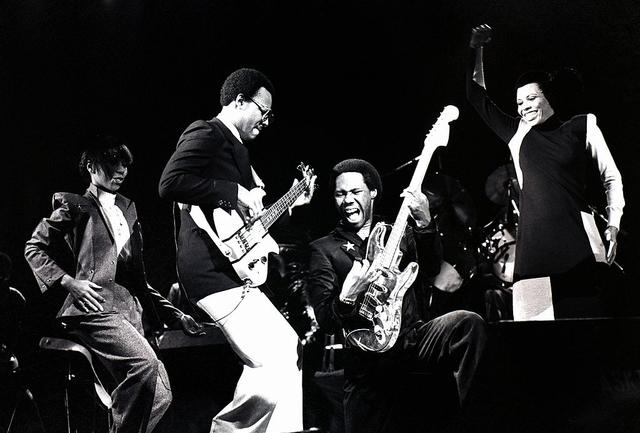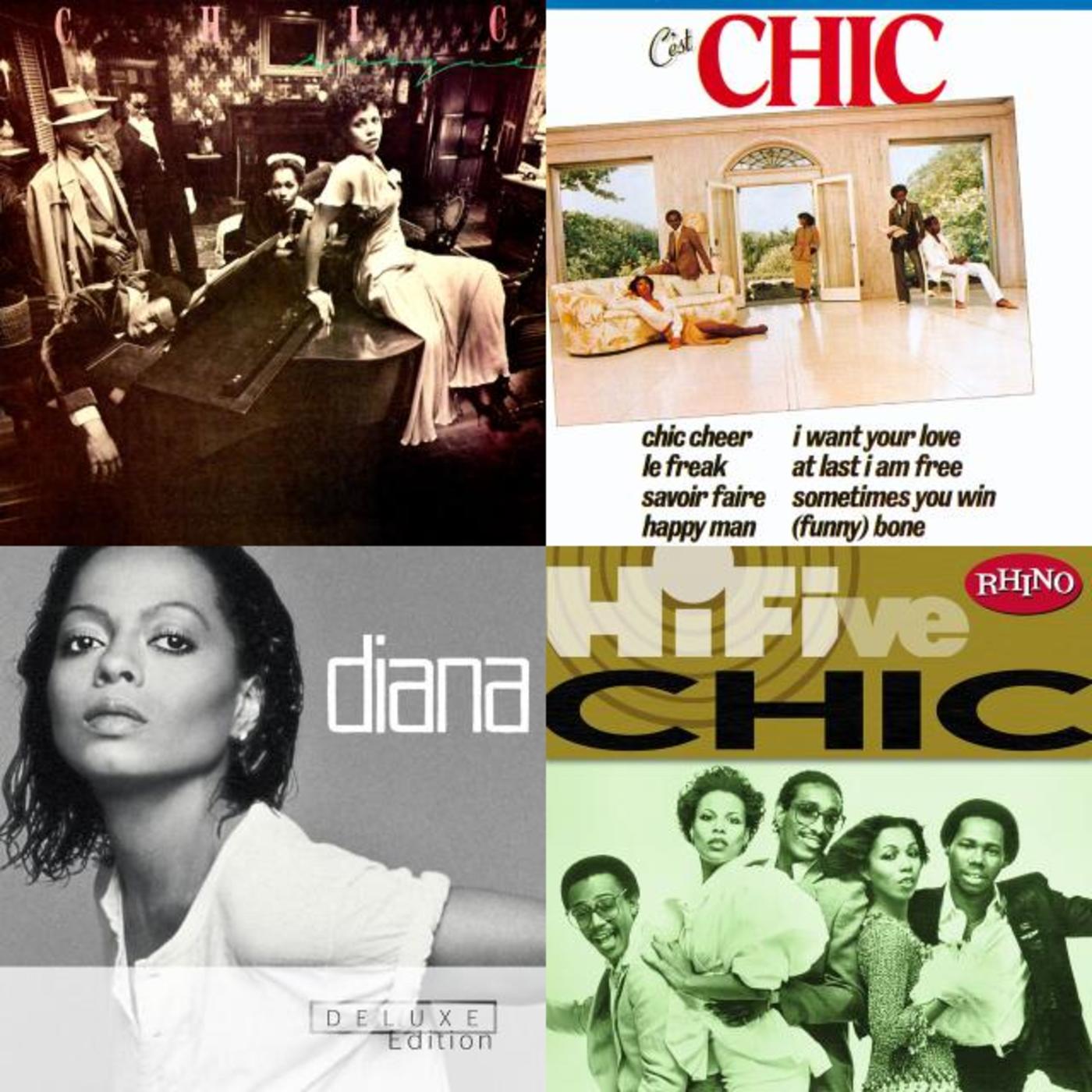August 1978: Chic Release C'EST CHIC

Nile Rodgers and the band Chic arrived like gangbusters with their self-titled 1977 debut album. Packed with dance-floor hits, the record sent tracks like "Dance, Dance, Dance (Yowsah, Yowsah, Yowsah)" and "Everybody Dance" up a variety of charts, including pop, R&B and club play. The New York band was just as successful in England. The one achievement Chic was unable to hit with that first album, however, was a #1 song on the Hot 100. That would all change just one year later with the group's second studio effort, C'est Chic.
C'est Chic hit American record stores on August 11, 1978. The album's lead single, "Le Freak," followed a month later, but the writing was on the wall. Dance DJs were already spinning the monster hit, which twirled up the charts until landing #1 on the Hot 100 for the week of December 9, 1978. Barbra Streisand and Neil Diamond grabbed the top spot on the following week's chart with "You Don't Bring Me Flowers," but "Le Freak" was not done. Chic reclaimed #1 for the week of December 23, 1978, and the week after that, making it the last #1 song of 1978.
It was the Bee Gees, however, who'd score the first #1 song of 1979 with "Too Much Heaven," which held onto the spot for the first two weeks of January 1979. Chic and "Le Freak" stormed back to #1 for the week of January 20, 1979, for another three weeks as the most popular song in America. The song's epic run was finally ended in February 1979 by Rod Stewart's "Da Ya Think I'm Sexy." The track was so big that despite being released in 1978, it would rank as the third biggest song of 1979.
"Le Freak" was famously inspired by Nile Rodgers and his Chic bandmate, Bernard Edwards, being denied entry to Studio 54 for the big New Year's Eve 1977, per Grace Jones' invitation. Being Grace Jones, she promptly forget to tell the doormen about the invite, and the pair were turned away. That's when they went straight to the band's practice space and wrote the furious jam, with the words "F-ck You" being the title. They wisely changed the track's name to "Le Freak."
Chic followed "Le Freak" with the second and final single from C'est Chic, "I Want Your Love." The sweeping and symphonic dance track was another big hit, peaking at #7 on the Hot 100 for the week of May 5, 1979.
"Every single Chic record is exactly the same, so to speak," Rodgers revealed to Sound on Sound in 2005. "The concept of a Chic album is that we're the opening act for a really big star, and we're unknown. No one has ever heard of us, we're brand new, and we're a live band coming out on stage to tell everybody who we are. So, there's always a song on the album that announces we're Chic -- on the first album it's 'Strike Up the Band', on the second it's 'Chic Cheer', and so on. The concept is that we're an R&B band playing live for an old-time R&B audience. People came to those old-time shows to be blown away. They came to see the star, but the opening act was important too, so the opening act had to put on a really good show. And if you see a Chic show live now, that's what we do -- you know, before we walk onstage, the announcer says 'The man who brought you hits like "Everybody Dance"! "Le Freak"! "Good Times"...' It's really old-school."
C'est Chic did brisk business as a whole, with the album clearly being a popular gift for the 1978 holiday season. The record peaked at #7 on the Billboard 200 for the week of December 23, 1978. The #1 album in America that week: Billy Joel's 52nd Street.


